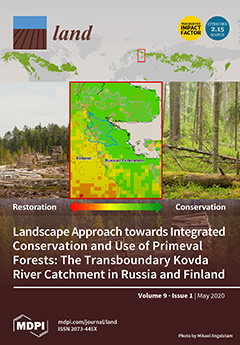Resource information
Environmental policies in the realm of land management are increasingly focussing on inducing behavioural change to improve environmental management outcomes. This is based, implicitly or explicitly, on theories that suggest that pro-environmental behaviour can be understood, predicted and altered based on certain factors (referred to as determinants of pro-environmental behaviour). However, studies examining the determinants of pro-environmental behaviour have found mixed evidence. It is therefore important that we revisit these theories to assess if the evidence supports their postulations so that a more robust knowledge base can be established to inform land management policies. In this study, we do this using meta-analytic structural equation modelling (MASEM) to explore whether the evidence on determinants of pro-environmental behaviour supports the postulations of some predominantly applied theories of behaviour and/or behaviour change. The study analyses research in four environmental policy areas to identify implications for land management. Evidence from these related environmental areas is expected to provide insights relevant to the land management literature and to allow us to identify the extent to which lessons on pro-environmental behaviour from these other areas can be transferred to the land management context. Our findings suggest a strong evidence base for the Theories of Planned Behaviour and Reasoned Action, Attitude-Behaviour-Context Model, and the Persuasion Theory, but a weak evidence base for the Value-Belief-Norm Theory and the Norm Activation Model. We also found that type of environmental policy area moderates the relationship between different variables. This has key policy implications since, while lessons can be learnt from other environmental policy areas, land management policies aimed at influencing behaviours will need to be tailored to the specific context rather than simply ‘imported’ from other fields. Such context-specific policies may encourage pro-environmental behaviours, and potentially contribute towards improving environmental management outcomes.


